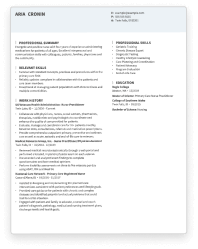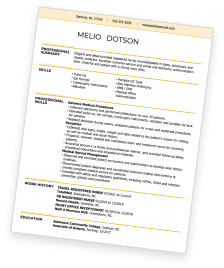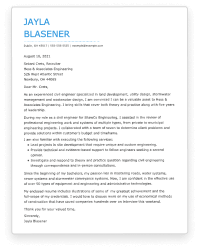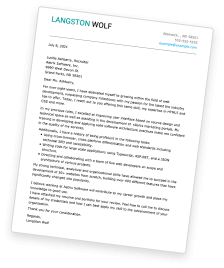Dentistry Resumes: Overview
From providing preventive care and treating dental issues to educating patients and building crowns or bridges, dentistry encompasses a range of responsibilities critical for maintaining overall well-being. Your personal role in this dynamic field might be varied and multifaceted, but the overarching focus will always be on safeguarding patients’ oral health.
Dental professionals work across many important roles, including:
- Dentist
- Orthodontist
- Dental Hygienist
- Dental Assistant
- Dental Laboratory Technician
- Oral Surgery Assistant
Depending on your job title, you might need a degree from an accredited program and a state license to practice dentistry. All dental professionals also require relevant technical expertise, clinical knowledge, dexterity, strong interpersonal skills, attention to detail, and a commitment to staying up to date with the latest advancements in dental practices.
How do you capture all these credentials and competencies on a single page? Master the art of building a perfect resume for a dentistry job with the help of our many high-quality resume examples and downloadable templates.
Dentistry Resume Example: Dentist
Unlock the secrets of a job-winning dentistry resume with this polished dentist resume example. This meticulously crafted document boasts many features that make it an outstanding template for experienced dental professionals.
Specificity:
Rather than being vague, the candidate lists specific dental practices and procedures she has performed (for example, extractions and root canal therapy), providing a clear picture of her specialized skills.
Well-Organized Sections:
The document is divided into clear sections, each labeled with a header that catches the eye, making it easy to find key information.
Flawless Spelling and Grammar:
The absence of typos and grammatical errors is a mark of professionalism and shows that the candidate takes pride in her work and pays attention to detail.
Clever Use of Bolding:
Bold is used sparingly and strategically to emphasize key points, like previous job titles and the degree type, and make them stand out on the page.
Dentistry Resume Example: Oral Surgery Assistant
Explore another exemplary dentistry resume that sets the standard for success in the field. This dental surgeon assistant resume example showcases strong design elements and content choices that you can draw on to inspire your own application.
Eye-Catching Design:
A colorful header, shaded columns, bullet points, and a professional font combine to make this resume visually striking, ensuring it grabs attention immediately.
Engaging Professional Summary:
The resume example starts with a compelling summary statement that highlights the candidate’s key areas of expertise and captures why he’s an ideal fit for the job in a few concise sentences.
Single-Page Layout:
By using two columns and including only relevant information, the candidate manages to fit a lot of content into the recommended length of one page, increasing the chance that busy hiring managers will read it.
Descriptive Language:
Dynamic language and strong action verbs like “measured,” “sterilized,” “scheduled,” and “verified” make the resume engaging and paint a vivid picture of the applicant’s experience and abilities.
How to Write a Dentistry Resume
To craft an impactful dentistry resume, you must follow a strategic process that prioritizes relevance and starts with a clear resume outline. Below you’ll find guidance on how to structure your document and write its various sections to showcase your unique skills and expertise effectively.
For more guidance, take a look at dentistry resume examples and explore our in-depth guide on how to write a resume that grabs and holds the attention of prospective employers.
Pick a Format
You may be wondering whether there’s an ideal dental resume format to use for your document. The answer is, you have three standard formats to choose from, and the best option for you will be dictated by your level of experience and career trajectory.
If you’re a seasoned professional with 10 or more years of experience in dentistry, use the chronological format to highlight your career progression and place emphasis on your impressive work history.
Alternatively, if you’ve just completed your degree or are shifting your career focus, go with the functional format to spotlight your skills and education while deemphasizing your lack of relevant work experience. The latter might be a suitable option if you’re applying for your first role as a dental or orthodontic assistant, for example.
A final option is the combination format, which combines the best features of a functional resume and a chronological resume, providing the flexibility to highlight your work history and skills equally. Choose this structure if you’re a mid-level professional and want to show a balanced distribution of your abilities and professional experience.
Contact Information
Ensure that hiring managers can easily access your contact details by displaying them clearly at the top of your resume.
Include your full name, an active phone number, your professional email address, and location (only provide your city and state; not your street address).
If you have a well-maintained professional LinkedIn profile, add a link to it too so employers can dive deeper into your dentistry background and achievements.
Resume Summary or Objective
Introduce yourself and what makes you the best fit for the role in a concise but impactful summary or objective statement.
This section should offer a snapshot of your career and succinctly communicate your identity as a dental professional.
Though similar, a resume summary focuses on your most notable skills, accomplishments, and past contributions, while a resume objective sheds light on your career aspirations and what you hope to learn or achieve if hired.
The summary is, therefore, the right choice if you already have some relevant experience in dentistry, whereas the objective is a better option if you’re just starting out in the field. Whichever you write, you must emphasize the value you could bring to the position.
Remember to highlight your years of experience, specialized areas of expertise within dentistry (for example, orthodontics or dental implants), and any unique qualifications that set you apart.
Here’s an example of a summary statement from a pediatric dentist resume for inspiration:
“Dedicated pediatric dentist with nine years of experience delivering compassionate and comprehensive dental care to young patients. Adept at conducting routine check-ups, preventive treatments, and specialized pediatric dental procedures, including early orthodontic interventions. Skilled at creating a child-friendly environment and building trust with both children and parents to ensure a positive dental experience. Well-organized and detail-oriented, with a commitment to staying abreast of the latest advancements in pediatric dentistry.”
Work History
Delve into the specifics of your dental experience in a work history section that profiles your previous jobs from most to least recent.
For each role, list your job title, the name and location of the dental practice, and your employment dates. Include between three and five bullet points detailing your main responsibilities and accomplishments, like your contributions to patient care and treatment planning.
Don’t forget to highlight any specialized procedures you’ve performed or interventions you’ve been involved in.
Make your bullets more engaging by using strong action verbs, such as “examined,” “treated,” “administered,” and “educated,” and incorporating quantifiable metrics to showcase your impact – think patient satisfaction scores and percentages reflecting successful treatment outcomes or improvements in clinic efficiency.
Here’s what these descriptions might look like for a dental hygienist resume:
Dental Hygienist – Bright Smiles Dentistry – Chicago, IL – 06/2019 to present
Developed personalized oral hygiene education plans, leading to a 25% improvement in patient compliance with at-home care regimens.
Carried out comprehensive periodontal assessments, identifying and treating early signs of gum disease, resulting in a 32% drop in patient cases needing advanced interventions.
Efficiently scheduled and managed dental hygiene appointments, optimizing patient flow and reducing wait times by 40%.
Skills
Identify six to eight of your most notable technical and soft skills and list them in a dedicated skills section.
Focus on competencies highlighted in the job description and emphasize your knowledge of specific procedures, proficiency in using dental equipment and technologies, and familiarity with dental software.
Take the opportunity also to spotlight relevant personal attributes and interpersonal skills, like your ability to communicate effectively with patients, collaborate within a dental team, and display empathy during treatments.
Use bullet points to organize this section so that hiring managers can pick out your top strengths in a matter of seconds.
Take a look at this example of a skills section for an orthodontist resume:
SKILLS
Teeth realignment
Infection control
X-ray processing
Attention to detail
Corrective appliance fittings
Staff supervision
Treatment planning
Empathic dental counseling
Education
Showcase your dentistry qualifications in a short section that outlines your educational background. Include degrees you’ve completed, noting the full title, your major, the name of the program and school you attended, and your graduation date.
If you’ve recently finished studying and have limited work experience, you can strengthen your candidacy by mentioning relevant dentistry coursework, honors, and awards.
This is also the place to highlight your state license (if applicable), as well as any certifications, continuing education courses, or specialized training related to your dental expertise.
Additional Sections
If space allows, consider adding supplementary sections further to highlight your qualifications and suitability for the job.
For example, you could include a section to profile professional memberships in dental associations, publications in dental journals, or community involvement related to oral health awareness and outreach.
These additions provide a holistic view of your commitment to the field, devotion to ongoing professional development, and readiness to serve the community.
Key Skills For Dentistry Resumes
Above all else, hiring managers will be looking for proof that you possess the right skills and character traits needed to thrive in the role. Below are some of the most valued hard skills and soft skills in dentistry – all well worth including in your resume to boost its impact and show your fit for the job.
Top 5 Hard Skills for Dentistry Resumes
- Proficiency in Dental Technologies: Mastery of the latest dental equipment and technologies is essential for providing cutting-edge patient care. Proficiency in digital imaging, computer-aided design/computer-aided manufacturing (CAD/CAM) systems, radiography machines, and other advanced tools enhances diagnostic accuracy and treatment precision.
- Preventive Care: Expertise in preventive dentistry helps to promote long-term oral health in the patient community. The ability to implement preventive measures, like fluoride treatments, sealants, and teeth cleaning, serves to reduce the risk of bigger dental issues and foster positive oral hygiene habits.
- Diagnostics and Treatment Planning: A talent for making quick and accurate diagnoses is critical for identifying oral health issues early, allowing for timely intervention. Being adept at planning treatments supports the creation of comprehensive and effective care strategies that are tailored to patients’ unique needs.
- Surgical Competence: Skills in oral surgery techniques, like extractions and implant placements, equip you to provide comprehensive care and address a wider range of oral health problems. Proficiency in this area also enables you to manage emergencies, such as severe infections, where urgent surgical intervention might be necessary.
- Oral Care Counseling: The ability to guide patients on how to maintain optimal oral health is key for empowering them to make informed decisions and take an active role in their dental care. Strong patient education skills also help to establish a foundation for lasting patient relationships built on trust.
Top 5 Soft Skills for Dentistry Resumes
- Patient Communication: Effective communication is essential for building trust with patients and working successfully with other dental practitioners in a team. A knack for communicating clearly ensures that patients understand diagnoses and treatment plans, and helps to foster a supportive dental care environment.
- Stress Management: Dental professionals sometimes have to work under stressful conditions in high-pressure environments. A calm demeanor and strong stress management skills enable you to remain focused when the going gets tough and deliver optimal patient care.
- Empathy in Patient Care: The ability to demonstrate empathy allows you to connect with patients on a personal level. By understanding and acknowledging their concerns, you can put them at ease, improve their dental experience, and encourage loyalty to the practice.
- Collaboration: Dentistry is a collaborative field that requires seamless teamwork between various professionals. A talent for working well with others is, therefore, central to efficient patient care and key to executing complex procedures as a team.
- Cultural Competence: An understanding of how to effectively navigate cultural nuances and differences promotes respectful and inclusive patient interactions. It contributes to the development of positive relationships and boosts professional performance in a multicultural dental practice.
The skills outlined above are sought after by employers in the dentistry field, but the best dental skills to put on your resume will always be those highlighted in the job description. Remember to prioritize relevance when showcasing your skills and your document is sure to get noticed.
Top 6 Certifications for Dentistry
Earning certifications in dentistry is a strategic way to demonstrate your mastery of specialized skills and your commitment to continuous learning. Here are just a few certification options in the dental field that would look good on your resume:
- Board Certified General Dentist: Attaining certification from the American Board of General Dentistry demonstrates substantial knowledge of the many aspects of dentistry and a dedication to offering the highest level of care to dental patients.
- Certified Dental Assistant (CDA): A widely respected certification for dental assistants, this option is valuable for proving proficiency in chairside assisting, an understanding of various dental procedures, and an adherence to industry standards.
- Certified in Dental Infection Prevention and Control (CDIPC): Another certification option from the Dental Assisting National Board, this designation validates expertise in dental instrument sterilization, environmental disinfection, and many other standard infection control precautions. It shows a commitment to patient and staff safety, boosting your marketability.
- Certified Dental Technician (CDT): This credential acknowledges a technician’s competency in a specialized area of the dental laboratory technology field. The certification indicates an understanding of the contemporary manufacturing procedures involved in creating specialty dental appliances like dentures, crowns, implants, and orthodontics.
- American Dental Board of Anesthesiology (ADBA) Certification: Earning this credential verifies that you have the knowledge and skills needed to provide dental patients with safe anesthesiology alternatives, including conscious sedation, deep sedation, and general anesthesia.
- Board Certification in Pediatric Dentistry: Offered by the American Board of Pediatric Dentistry (ABPD), this certification demonstrates specialized expertise in providing dental care to children. It’s a way to show you have the unique skills required to effectively address the oral health needs of young patients.
7 Tips For Writing A Dentistry Resume
- Showcase Clinical Proficiency: As clinical work is a cornerstone of dentistry, it’s important to emphasize your clinical skills and experience, detailing specific dental procedures you’ve mastered. Highlight your expertise in areas like oral surgery, endodontics, or pediatric dentistry to showcase your ability to provide specialized patient care. In your work history section, provide tangible evidence of your clinical abilities by quantifying your impact with numbers and metrics, specifying, for example, the number of successful treatments performed or percentage improvements in oral health outcomes.
- Highlight Continuing Education: Dentistry is a dynamic field that’s constantly evolving, so practitioners’ knowledge and skills can quickly become outdated. Spotlight your commitment to ongoing professional development by listing continuing education courses, certifications, and workshops in a separate section of your resume. Doing so underscores your dedication to staying abreast of industry advancements and shows your eagerness to integrate new and improved techniques into your practice to enhance patient care.
- Name-Drop Dental Technology: Modern dentistry relies quite heavily on technology, so proficiency in dental software, digital imaging, and other advanced systems is highly valued by employers. Clearly articulate your familiarity with these tools, mentioning them in your resume summary, skills section, and work history section where appropriate.
- Emphasize Patient Communication Skills: As mentioned, strong communication skills in dentistry promote positive patient experiences and facilitate successful treatment outcomes. Show hiring managers that you are a skilled communicator by including examples of when you explained complex treatment plans to patients, educated them on oral health practices, answered pressing questions, and addressed concerns with empathy.
- Mention Professional Memberships: If you’re a member of a professional dental association, like the Academy of General Dentistry or the American Dental Association, make this clear in your resume (you can even add a separate section for memberships). Being part of reputable dental organizations indicates your adherence to industry standards and commitment to ethical practices, while showing that you have a network of peers who recognize your professional standing.
- Choose a Professional Font Worthy of the Field: Professionalism is valued in most industries, but it’s absolutely vital in a healthcare field like dentistry. Let the aesthetics of your resume reflect this by using a traditional, well-recognized, and easy-to-read font like Arial, Georgia, or Cambria, as well as a clean and organized layout.
- Demonstrate Attention to Detail with Consistent Formatting: A good eye for detail is a critical attribute in dental settings. Showcase your thorough and meticulous inclinations by maintaining a uniform and standardized presentation throughout your resume – any inconsistencies in font style and size, alignment, spacing, or heading treatment look sloppy and reflect poorly on your work ethic.
Helping Job Seekers Like You


Save Time With Hloom's Resume Builder
Key Takeaways
- Be specific about the dental procedures you’ve performed and the dental technology you’re familiar with – include full names and official terms whenever possible.
- Showcase dental certifications you’ve earned to demonstrate your mastery of specialized skills and your dedication to professional growth.
- Use descriptive language and quantifiable metrics in your work history section to provide tangible evidence of your impact and help readers visualize your past contributions in the dental field.
- Emphasize soft skills like communication, empathy, collaboration, and cultural competence, which all play a pivotal role in promoting positive patient relationships and interactions with colleagues.
- Use a traditional, easy-to-read font, well-organized sections, and a clean layout to enhance readability and align with the level of professionalism that’s expected of dental practitioners.
Save Time With Our Cover Letter Builder














